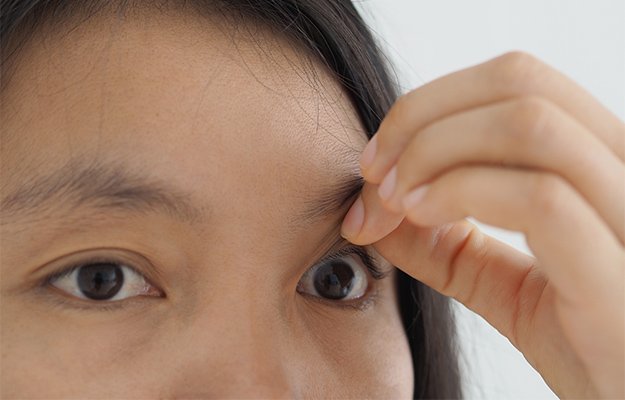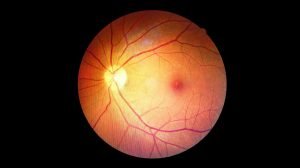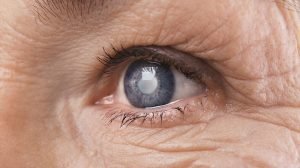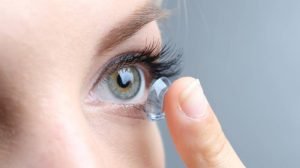In this article, we will learn about a macular hole, including its definition, symptoms, causes, and treatment.
What Is a Macular Hole?

Before talking about macular holes, let’s first define what the macula is. The macula is the part of the retina that is essential for central vision and color vision. The central vision allows you to focus on details.
A macular hole is literally a hole that develops on the macula, due to the separation of nervous cells within the retina. Over time this hole can grow in size and cause more central vision loss.
Despite its significant impact on vision (it may lead to permanent vision loss), a macular hole is relatively rare, with only 8 out of 100,000 people being affected with this condition throughout their lifetime. Most macular holes develop with age (age 55 and above) and women are at higher risk of developing macular holes than men. If you develop a macular hole in one eye, you have a 10-15% chance of developing one in the other eye.
Symptoms
Macular holes develop slowly. You may start to notice a slight blurriness or distortion when looking at objects.
Possible symptoms may include:
- Decreased sharpness of vision, regardless of looking far or near.
- Distorted or blurred vision when looking straight ahead.
- Straight lines or objects become bent or wavy.
- Difficulty reading, writing or driving.
- Blurred or dark spots in the middle of the visual field.
- Inability to see a person’s nose or eyes.
- Severe changes in visions that feel like looking through frosted glass.
Causes
Aging is the leading cause of macular holes. Other causes include:
- Eye injury or blunt trauma
- Complicated myopia
- Diabetic eye disease
Diagnosis
An OCT, short for Optical Coherence Tomography, is used to diagnose macular holes. It’s a quick and painless imaging test, that scans the retina allowing to assess the macula and retina with high-definition pictures. It can also rule out other eye conditions with similar symptoms.
Treatment
A tiny, insignificant macular hole may occasionally resolve on its own, but it will have to be monitored closely.
Most macular holes require surgery, and the most common procedure is a vitrectomy. During the procedure, the vitreous gel is replaced with a gas and air mixture. This bubble serves as a temporary bandage that holds the macula in place till it’s healed.
Following the surgery, you may have to cut back on some activities, such as flying or diving, lifting, or bending.
If you experience any of the symptoms of a macular hole, contact EEC today for an eye exam!
Every patient deserves top-quality eye care from us. European Eye Center focuses on providing Western-standard services and determining appropriate treatment plans to help patients restore their vision in a feel-like-home atmosphere.
We are happy to help if you have questions about macular holes or any other vision conditions. Don’t hesitate to connect with us at info@europeaneyecenter.com.
Contact us today to schedule an eye care service!







